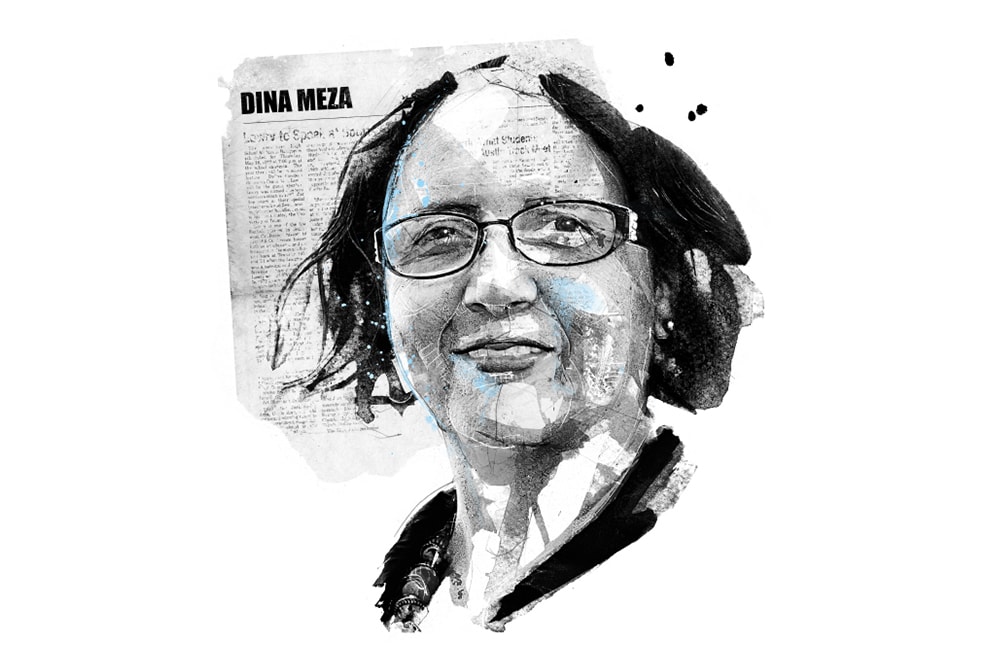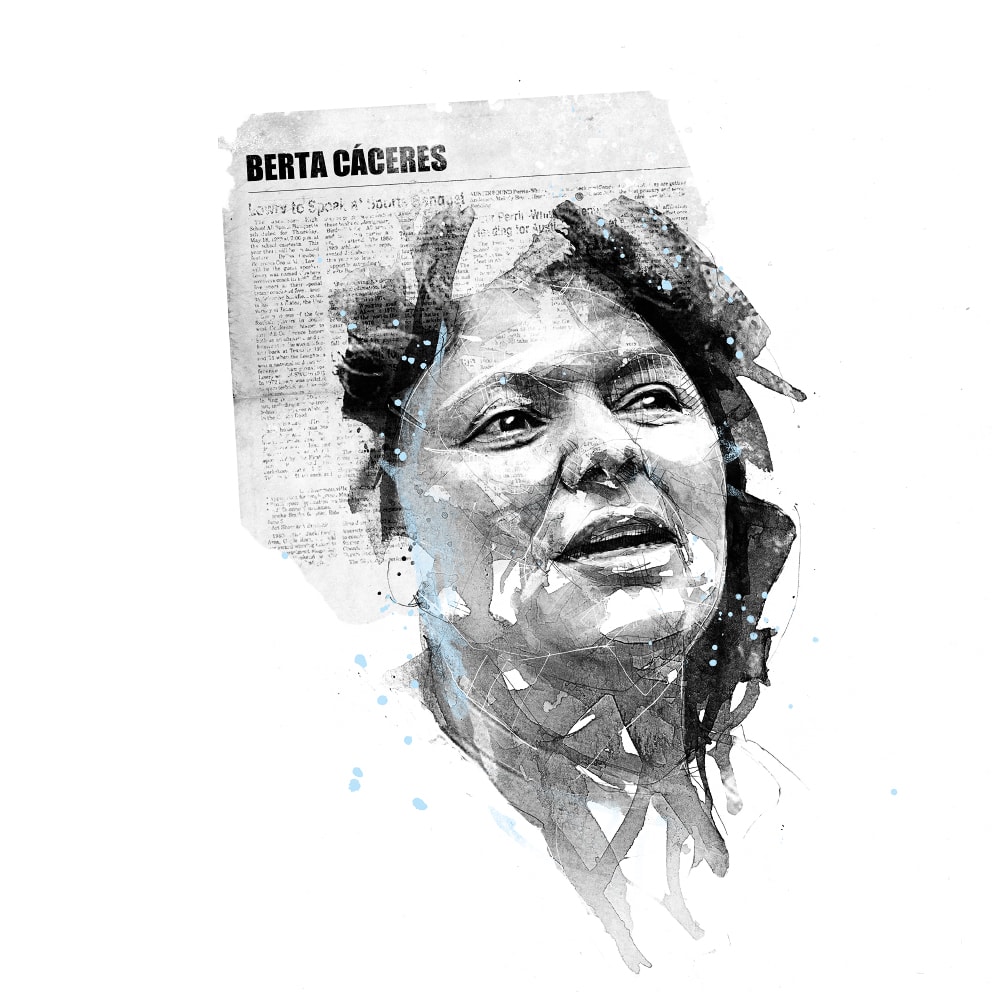Honduran human rights defender and journalist Dina Meza faces regular personal threats as she works to challenge the appalling state of human rights in her country.
In a piece to mark World Press Freedom Day in 2012, Meza wrote: Don't think that I am not afraid; many times I've felt as though fear has soaked through to my bones, but the feeling of responsibility is stronger.
In Honduras, the country with one of the world’s highest murder rates, human rights defender and journalist Dina Meza has, at considerable risk to herself, consistently challenged the impunity enjoyed by those who kill and abuse others’ rights.
Meza’s fight for justice was sparked in 1989 when her brother, a campaigner for agricultural rights, was abducted. Held by security services on accusations of being a guerrilla fighter, he was tortured before being freed a week later. This experience inspired Meza’s resolve to challenge the appalling state of human rights in Honduras, a pledge that she holds onto to this day.
Meza initially worked for the mainstream press, but had to leave after being told once too often to tone down her criticism in her reports. She went on to set up the online magazine Revistazo that investigated abuses by private security firms, labour rights and other issues that the mainstream press would not cover. Revistazo also gave support to victims of abuses who could not afford legal representation. In December 2006, Dionisio Diaz Garcia, a lawyer working for Revistazo, was shot dead in the street as he was on his way to represent one of these victims. In acute danger themselves, the magazine’s seven-strong staff, including Meza, were granted Inter-American Commission on Human Rights precautionary measures that demanded the Honduran government give them protection. Body guards were provided but only during office hours, and Meza’s team was responsible for covering their meals and travel expenses. All the while Meza and her colleagues lived with the fear that their guards may themselves be under the influence of the private security firms that were linked to the lawyer’s murder.
Despite the precautionary measures, the threats against Meza took hold with a vengeance and continue to this day. She has reported unidentified callers leaving her phone and text messages, being stalked by strangers taking photos while she was out walking with her children, and particularly distressing for her, direct threats to her three children. Many of the messages are filled with sexual violence and obscene language, and have extended to her teenage daughters. Her son was once threatened by a man with a gun as he travelled on a bus. So it was a welcome respite for all the family when they went to the UK in 2013 while Meza took up a six-month fellowship at York University’s Centre for Applied Human Rights.
Meza is a key member of the Committee of Families of Disappeared-Detainees in Honduras (COFADEH) that advocates for the detained and the disappeared, which itself suffers constant harassment and assaults on its staff. Meza heads the Committee’s digital and alternative media program, writing for its website, as well as producing its weekly radio program, ‘Voces Contra el Olvido’ (Voices Against Forgetting).
Meza’s work is recognized internationally. She was awarded Amnesty International’s Human Rights Journalism Award in 2007. She was a focus case for PEN International’s 2013 Day of the Imprisoned Writer, and was a recipient of the Oxfam-Novib/PEN award in 2014, becoming President of the newly formed Honduran PEN Centre the same year. She is also a reporter for Reporters Sans Frontiers (RSF) who listed her among its 100 Information Heroes in 2014. Another of her projects, the Iniciativa Periodismo y Democracia (Initiative for Journalism and Democracy), has been granted funding by Fund for Global Human Rights.
In January 2014, PEN International published its report on Honduras, Journalism in the Shadow of Impunity which noted that at least 32 journalists had been killed since 2009. Commenting on the report, Meza said “Exercising freedom of expression in a nation where impunity has taken over the country . . . is an act of defiance which carries with it the threat of death.”
Little has changed since then. In fact, indications are that conditions in Honduras have deteriorated, with increased persecution of activists and media outlets.
As a result of this situation, in 2014 Meza requested accompaniment from Peace Brigades International in order to both ensure her safety and be able to continue her fight to defend human rights in Honduras.
Even with these measures, on 28 September 2015, two unidentified men attempted to run Meza down. The human rights defender, however, refuses to be intimidated and has continued her work in a variety of ways, including via her publication: Pasos de Animal Grande.
Today, Dina is the President of PEN Honduras, an organisation that supports journalists at risk, and the director of ASOPODEHU, the Association for Democracy and Human Rights in Honduras. On International Women’s Day in 2018, she represented the organisation in presenting an important report on violence against women journalists in Honduras to the US Congress’ Tom Lantos Human Rights Commission.
Illustration by Florian Nicole

